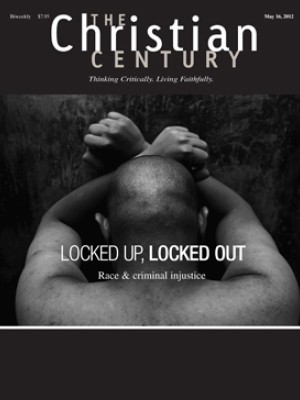Investing in Palestinians

How can the churches acknowledge the complexity of the political challenges in the Middle East? How can Christians support Palestinian brothers and sisters in faith who are caught in that complexity and have endured four decades of Israeli occupation and restricted human rights? And how do we respond in a way that actually helps Israelis and Palestinians move toward peace and mutual security?
One response is the so-called BDS movement, which has proposed boycotts, divestment and sanctions from corporations that do business with Israel and are deemed harmful to the prospects for peace and harmful to Palestinians and which has publicly condemned Israel as an “apartheid” state.
Read our latest issue or browse back issues.
In this issue ("Investment, not divestment"), Thomas A. Prinz and Karl-John N. Stone argue for an alternate response—positive investment in the Palestinian economy. In 2010, New York Times columnist Thomas Friedman argued that a viable Palestinian state (which a majority of Israelis support) must have strong Palestinian institutions and businesses and that the best way to further that goal is to invest in those institutions and businesses. He commended Palestinian prime minister Salam Fayyad, a former World Bank economist who has “unleashed the real Palestinian revolution” with his efforts to build a viable economy and market.
Although I have friends who are committed to the BDS movement, I find it difficult to agree with them. I am fairly certain that the decision of an American denomination to divest has no effect on Israeli policy and no effect on the corporations involved. BDS adds to Israel’s sense of isolation and perplexes and angers American Jews.
A rabbi who is a vocal critic of the current Israeli government and a strong advocate for Palestinians’ rights made this point to me: “When you Christians start talking about divesting from Israel, it sounds to us as if you are undermining Israel’s economy and thus Israel’s existence. We close ranks, and even progressive, sympathetic Jews become adamant Zionists.”
In a controversial new book, The Crisis in Zionism, Peter Beinart laments the continuing Israeli occupation of Palestinian territories, the failure to establish an independent Palestinian state, and the ongoing expansion of Israeli settlements in land needed for such a state. The situation is not only immoral and unjust, says Beinart, but seriously compromises and endangers core Israeli values of democracy and human rights. Yet Beinart also argues that comparing the BDS effort to the “global antiapartheid struggle sends the message that just as the apartheid state in South Africa was dismantled, so must the Jewish state be dismantled today.” Beinart proposes instead a boycott of illegal settlements and the goods they produce.
Beinart’s book will make many American Jews and Christians uncomfortable—the New York Times reviewer said it is filled with “Manichaean simplicities”—but as Bill Clinton wrote, “Beinart raises the tough questions that can’t be avoided, and offers a new way forward to achieve Zionism’s founding ideals.”
I’m hoping for positive investment in Palestine by denominations, congregations and individuals, Christian and Jewish. I’m hoping for one thing more: that every Christian congregation will sit down with a neighboring synagogue to talk about what is happening in Israel/Palestine and why each of us cares about it.






